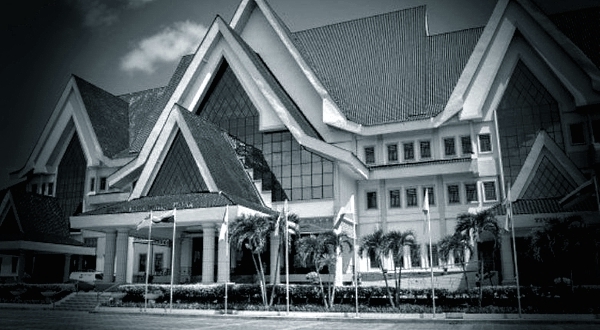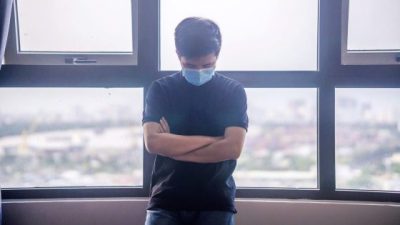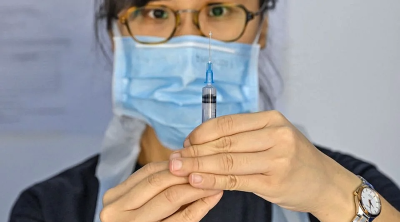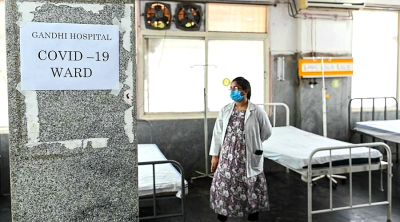Sin Chew Daily
Because of the defection of four assemblymen in Melaka in favor of Pakatan Harapan, the Yang di-Pertua Negeri Mohd Ali Rustam consented to dissolve the state legislative assembly on the advice of chief minister Sulaiman Md Ali. The election commission was subsequently notified of the decision.
Under Article 19(4) of the Melaka state constitution, state election must be held within 60 days after the state legislative assembly is dissolved, meaning state election must be held latest by December 3.
Under normal circumstances, election is an indispensable process in democratic politics. Nevertheless, in the midst of a ravaging pandemic, will the EC or state government have the ability to avert an explosion of virus outbreak like what happened after Sabah state election last year?
PM Ismail Sabri said that like the rest of the country, he was worried about an imminent election in Melaka. He admitted that the Sabah election last year was the primary cause for an explosive growth in the number of new COVID-19 infections nationwide.
There are two options following the dissolution of the Melaka state assembly: hold fresh election as required under the state constitution, or adopt the Sarawak model by proclaiming a state of emergency and appointing a caretaker government until the situation has improved for the election to be held safely.
Let’s first talk about the first option: fresh election.
 Late July last year, the Sabah state assembly was dissolved after the defection of several assemblymen. Election was held on September 26 and the ruling party Warisan was defeated. Never mind about the outcome of the election, but the biggest losers were the innocent Malaysians succumbing to the virus due to the explosion of new COVID-19 cases as a direct consequence of the election.
Late July last year, the Sabah state assembly was dissolved after the defection of several assemblymen. Election was held on September 26 and the ruling party Warisan was defeated. Never mind about the outcome of the election, but the biggest losers were the innocent Malaysians succumbing to the virus due to the explosion of new COVID-19 cases as a direct consequence of the election.
A week after the election on October 2, the cumulative total of infections nationwide stood at 11,771 cases, with 136 fatalities. A year later, today we have as many as 2.3 million confirmed cases in total, with 26,759 deaths, almost 200 times over!
We used to be a star performer in the global fight against the virus, but are now among the worst laggards in the world!
As such, we must draw a lesson from an erroneous decision we made last year to go ahead with the Sabah election.
If an election is completely inevitable, then the EC must discuss with the health ministry in order to draw up very stringent SOPs.
A general election was also held in neighboring Singapore last July in the absence of a remarkable spike in the number of new infections thanks to the tight anti-virus protocols enforced. The 10-day public campaign events were substituted with TV broadcasts, the number of polling stations was increased from 880 to 1,100, while voters must vote within their designated two-hour time slots. Such a strategy was meant to minimize overcrowding at polling stations and thus, infection risk.
Perhaps our EC can take cue from Singapore’s experience.
Of course, another reason Singapore successfully averted an explosive growth in new cases because the city-state had been doing exceptionally well in containing the virus outbreak for some time. As a result, daily new increases in confirmed COVID-19 cases had been controlled within single digit throughout the campaign period.
On the contrary, with a much smaller population of only 940,000, Melaka reported 246 new cases on Tuesday at a rate of 26.2 infections for every 100,000 people, or about 4.3 times the global average of 6.1 cases for every 100,000 people on the same day. The situation now is still very challenging, especially with the dreaded Delta variant ever on the prowl.
Holding an election at this moment is akin to openly declaring war on the virus and walking straight into the lion’s den. This massive gamble is putting the health of all the voters at stake.
We are not without a better alternative. A state of emergency should be proclaimed and a caretaker government appointed until the time is right for an election.
ADVERTISEMENT
ADVERTISEMENT








































